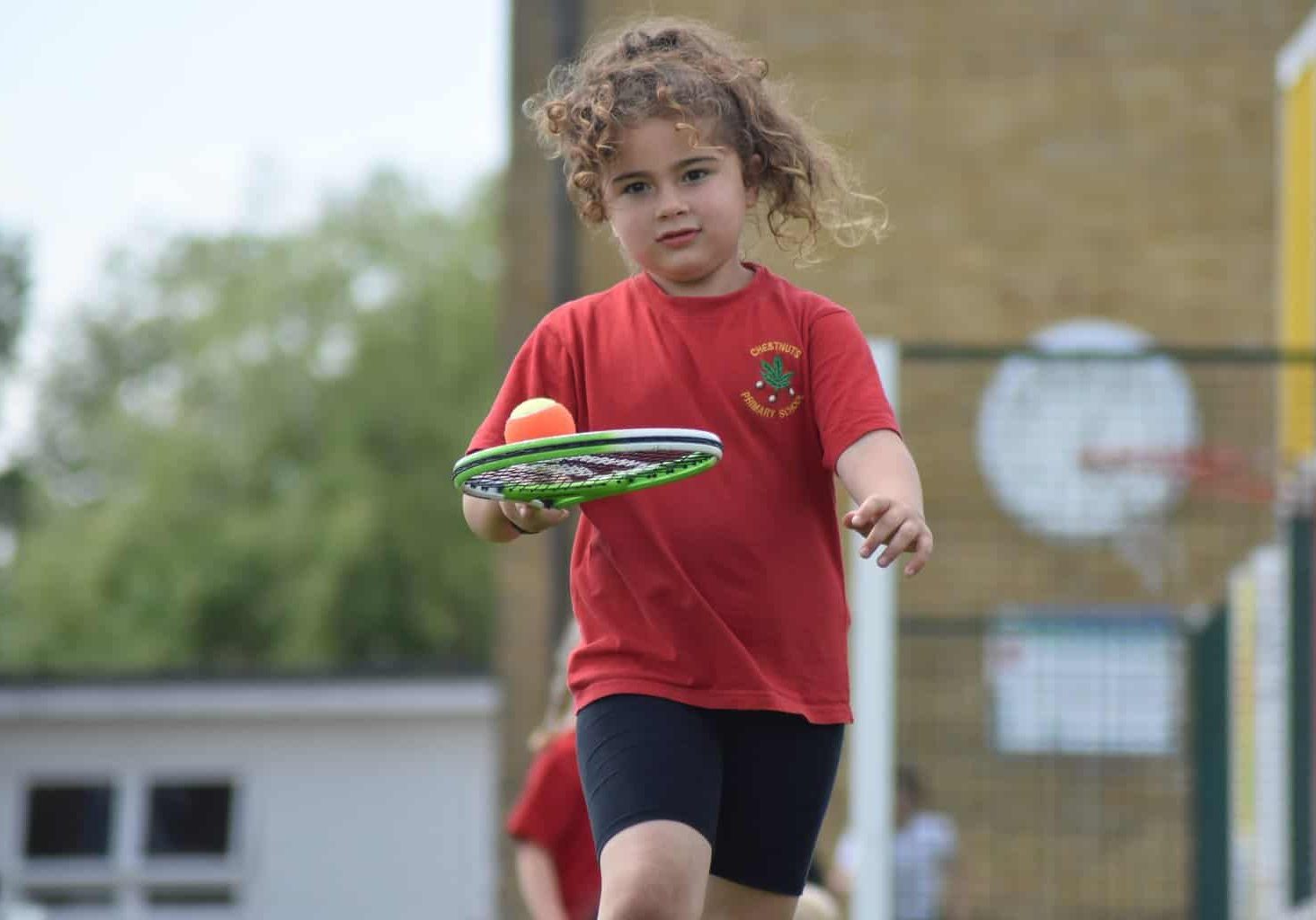
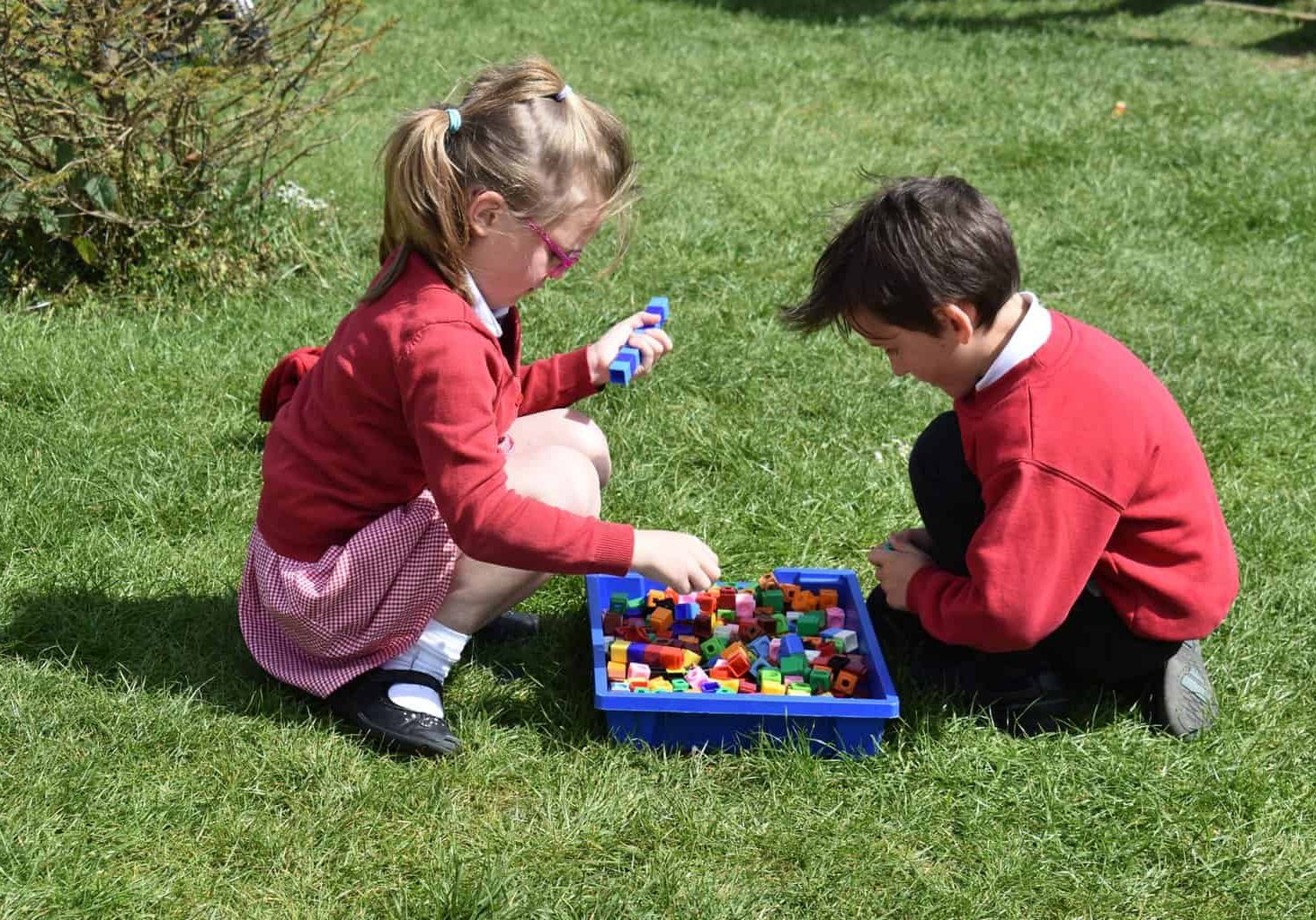
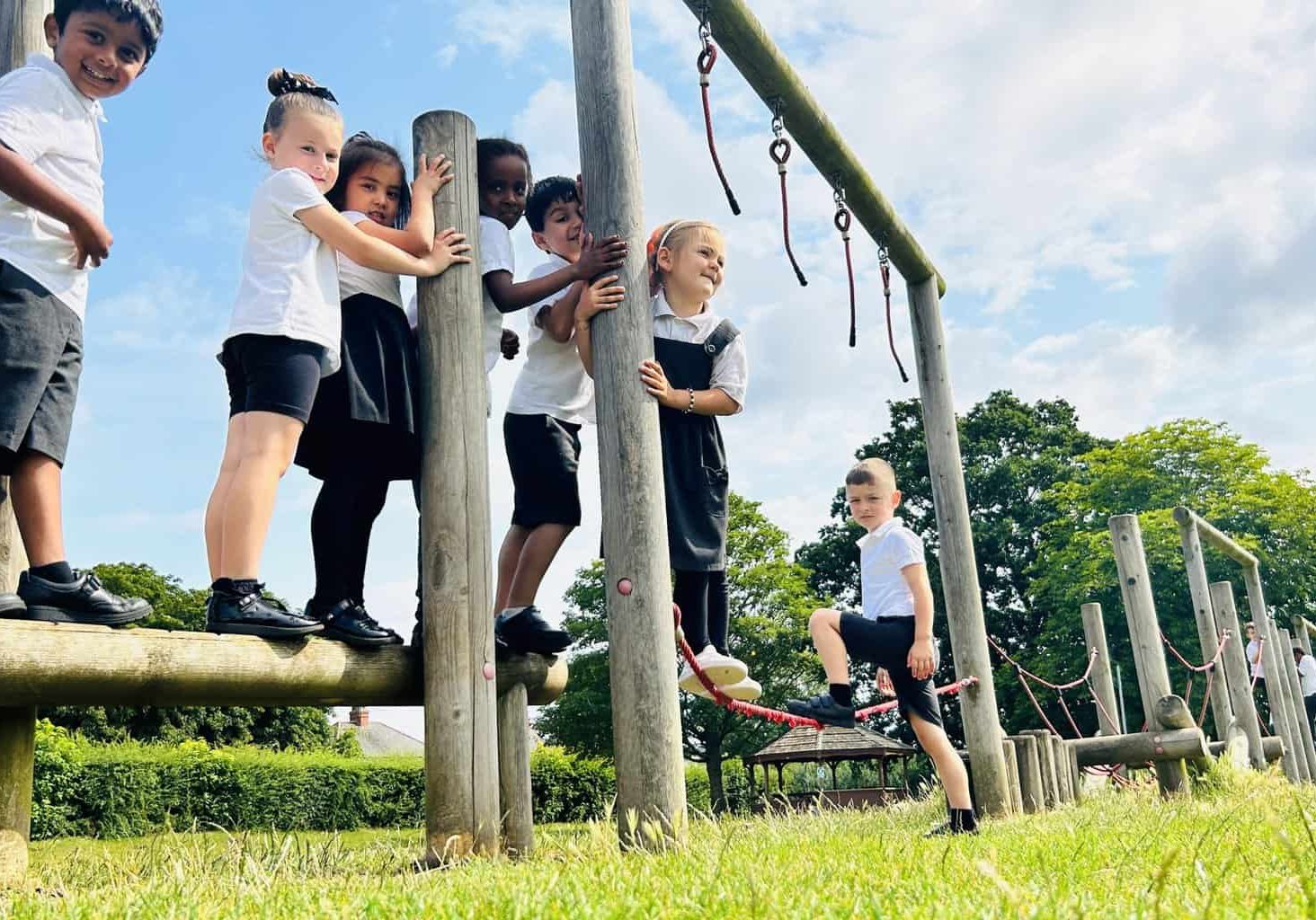
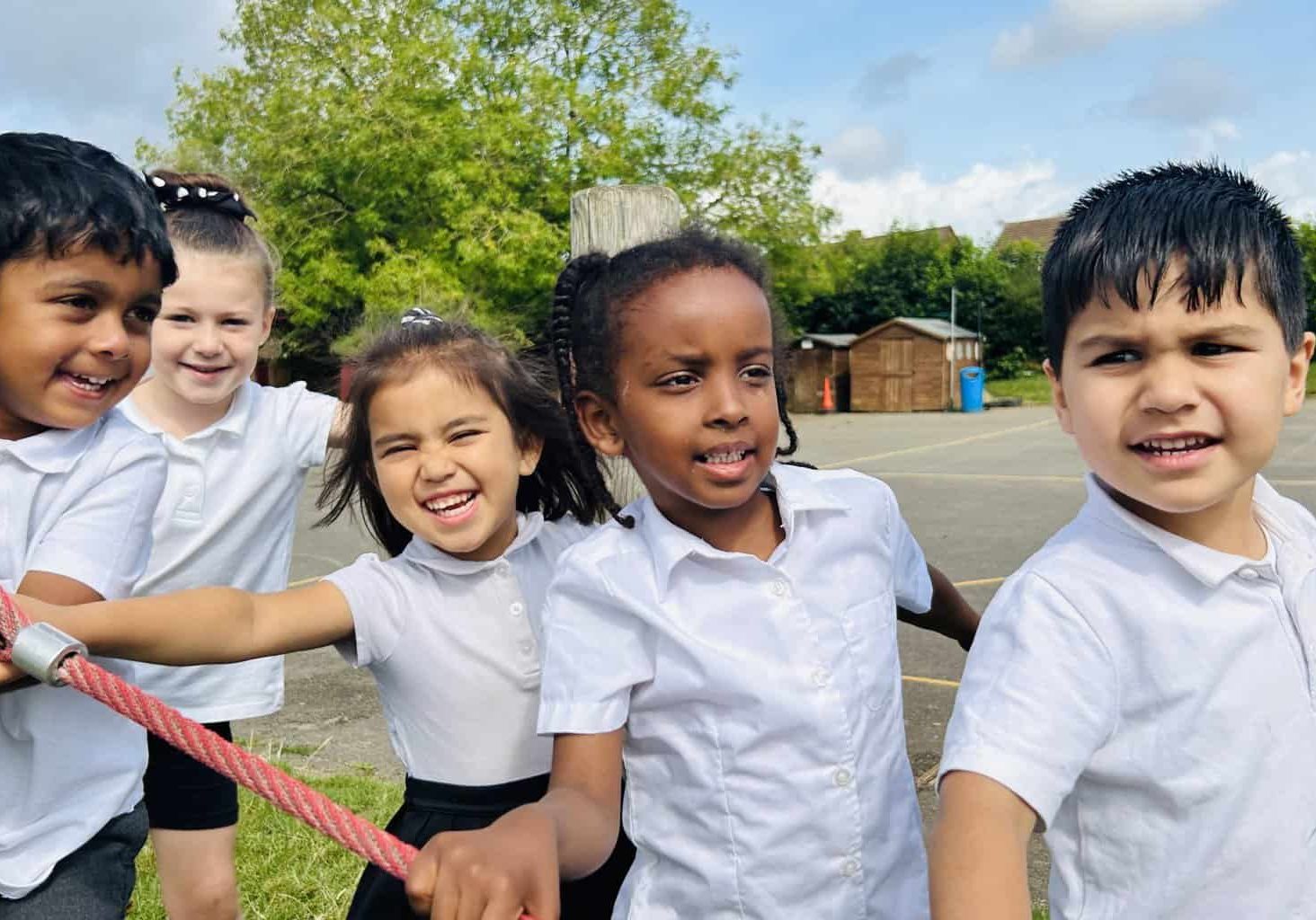
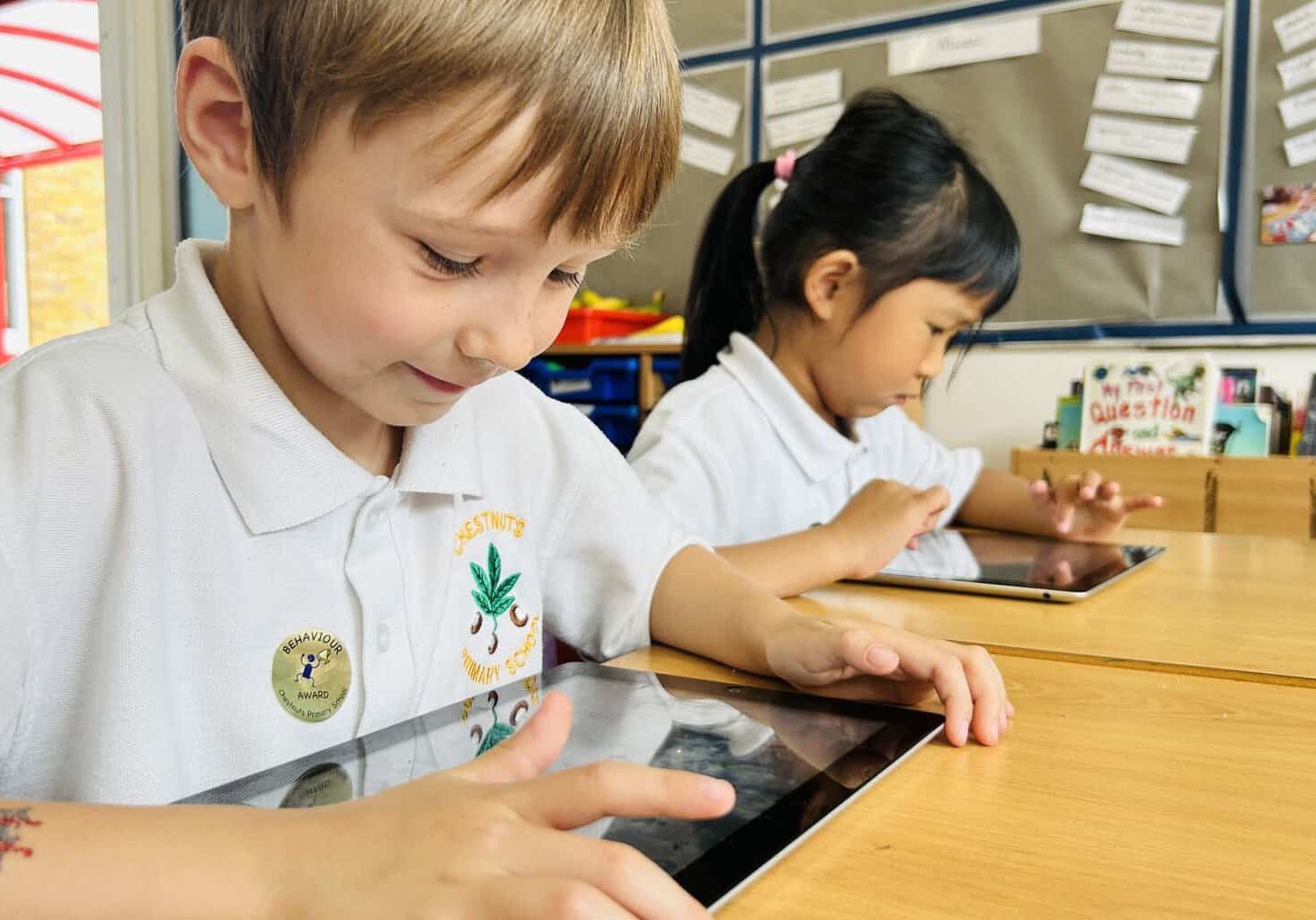
Maths
At Chestnuts, we teach a rich, balanced and progressive curriculum which encourages children to reason, problem solve and develop fluent conceptual understanding in each area of mathematics. We aim to create confident, resilient and enthusiastic mathematicians, who have a real love for maths. We foster a growth mindset attitude and believe that our abilities are neither fixed or innate and that every child can be ‘good’ at maths given sufficient time, support, resources and a ‘can do’ attitude. We use mistakes and misconceptions as an essential part of learning.
We understand the science of learning and how important it is for the children to revisit concepts before extending their knowledge. As a result, we have designed a curriculum which follows the National Curriculum and is progressive; the structure of the mathematics curriculum across school shows clear progression in line with age related expectations. Below, you will find an example of this progression across the school within the area of number and place value:
EYFS
- Count objects, actions and sounds.
- Subitise
- Link the numeral with its cardinal number value
- Count beyond ten
- Compare numbers
- Understand ‘one more than/one less than’
Year 1
- Count in multiples of 2,5 and 10
- Count to and across 100, forwards and backwards, beginning with 0 or 1
- Count, read, write numbers to 100 in numerals
- Given a number, identify one more and one less
- Read and write numbers from 1 to 20 in numerals and words
Year 2
- Count in steps of 2, 3 and 5 from 0 and in tens from any number, forwards and backward
- Recognise the place value of each digit in a two-digit number
- Compare and order numbers from 0 up to 100; use <, > and =
- Read and write numbers to at least 100 in numerals and words
- Use place value and number facts to solve problems
Year 3
- Count from 0 in multiples of 4, 8, 50 and 100
- Recognise the place value of each digit in a three-digit number
- Find 10 or 100 more or less than a given number
- Compare and order numbers up to 1000
- Read and write numbers up to 1000 in numerals and in words
- Solve number problems and practical problems involving these ideas
Year 4
- Count in multiples of 6, 7, 9, 25 and 1000
- Recognise the place value of each digit in a four-digit number
- Find 1000 more or less than a given number; Order and compare numbers beyond 1000
- Count backwards through zero to include negative numbers
- Round any number to the nearest 10, 100 or 1000
- Solve number and practical problems that involve all of the above and with increasingly large positive numbers
- Read Roman numerals to 100 (I to C)
Year 5
- Read, write, order and compare numbers to at least 1 000 000 and determine the value of each digit
- Count forwards or backwards in steps of powers of 10 for any given number up to 1 000 000
- Interpret negative numbers in context, count forwards and backwards with positive and negative whole numbers, including through zero
- Round any number up to 1 000 000 to the nearest 10, 100, 1000, 10 000 and 100 000
- Solve number problems and practical problems that involve all of the above
- Read Roman numerals to 1000 (M) and recognise years written in Roman numerals
Year 6
- Read, write, order and compare numbers up to 10 000 000 and determine the value of each digit
- Round any whole number to a required degree of accuracy
- Use negative numbers in context, and calculate intervals across zero
- Solve number and practical problems that involve all of the above
Throughout the school, our curriculum is designed to ensure that the children have the knowledge needed to feel empowered as they access the next phase in their learning journey. This, includes ensuring that the children develop the necessary knowledge and skills to equip them for their continued learning in Key Stage 3 where they will build upon their learning from Key Stage 2, making connections and solving increasingly sophisticated problems.
The Mastery Approach
We teach using a mastery approach, meaning we plan and structure our lessons so that children acquire a deep and secure understanding of each mathematical principle. We carefully build on previous knowledge and skills and teach children to see the relationships between numbers and other mathematical areas, to prevent a formulaic, procedural approach to maths. Our lessons contain fluency, variation, occasions to think mathematically and regular opportunities to spot patterns and make connections. Reasoning and problem-solving opportunities are provided in every lesson to enable children to make connections and see the skill they are learning in a variety of scenarios. We spend time teaching each area of maths in a block to allow for an in-depth understanding and sufficient time to practise, therefore securing learning. Key knowledge and skills are also revisited regularly allowing repetition to further embed learning.
The expectation is that most children will progress through the maths curriculum at broadly the same pace. However, decisions about when children are ready to progress are based on pupils’ understanding and their readiness for the next step in their learning. Pupils who grasp concepts rapidly will be encouraged to challenge themselves through rich and sophisticated problems rather than any acceleration through new content. Those who are not yet confident with earlier material have opportunities to consolidate their understanding, including through additional practise, before moving on. Through this support we ensure that all children make progress.
Fluency Starters
Retrieval practice is a key principle in ensuring good progress in any area of the curriculum. With this in mind, we include fluency starters (Fluent in 5) throughout the week in our lessons to help children build and embed the fundamentals. Alongside this, some year groups also teach a short weekly arithmetic session to recap and embed those key number and calculation skills in order to support the children’s progress in all areas of the maths curriculum.
The CPA approach
At the heart of our mastery teaching is the CPA (concrete, pictorial, abstract) approach. We explore mathematical concepts with a range of concrete resources to help children ‘feel’ the maths. The use of these concrete resources then supports the children to make links and use pictorial representations and jottings to further develop their understanding and really ‘see’ the maths. This kind of experiential learning helps to further commit to memory the principles taught in a lesson. As their knowledge of the mathematical concept becomes more secure, the children are then able to make links between the concrete and pictorial and apply it in an abstract form.
TT Rock Stars and NumBots
We believe that number facts are the fundamental basics of mathematics. They are the building blocks for many other skills and, without these, children struggle to fully embed and succeed in other areas of the maths curriculum. In the Early Years and Year 1, children regularly explore the identity of numbers and, with regular counting and use of concrete resources, begin to develop and embed number bonds.
To support this further, all children are provided with a login to NumBots - a software programme that provides children with fun games to help them develop their number facts further. Within our weekly celebration assembly, children are awarded certificates for passing NumBots stages; for highest accuracy; and for the most minutes played.
Towards the end of Year 1, children progress onto the TT Rock Stars programme, which they continue to use throughout Years 2 to 6. This allows them to practise their multiplication and division facts in a fun, engaging way. Each week in our celebration assembly, we award certificates and prizes for the children across the school who have shown great perseverance, earnt the most coins, and improved their accuracy the most. In addition to this, we have a class leader board display where classes can earn points each week for the highest percentage of players, playing the most minutes and for the highest, class accuracy in both NumBots and TT Rock Stars.
Interventions and Maths Leaders
We believe in the philosophy that children should be encouraged to ‘keep up’ rather than ‘catch up’ so provide same day interventions in many year groups to provide extra support and guidance with the skills being taught. To allow all children to access these ‘keep up’ interventions, we carefully select a group of supportive, knowledgeable Year 6 children to run small group interventions in identified year groups to help develop understanding and confidence amongst their younger peers.
Number Day
Each year, we participate in NSPCC Number Day encouraging the children to dress up and have fun with numbers. We run a whole school TT Rock Stars and Numbots tournament, awarding the winners with prizes and certificates.
